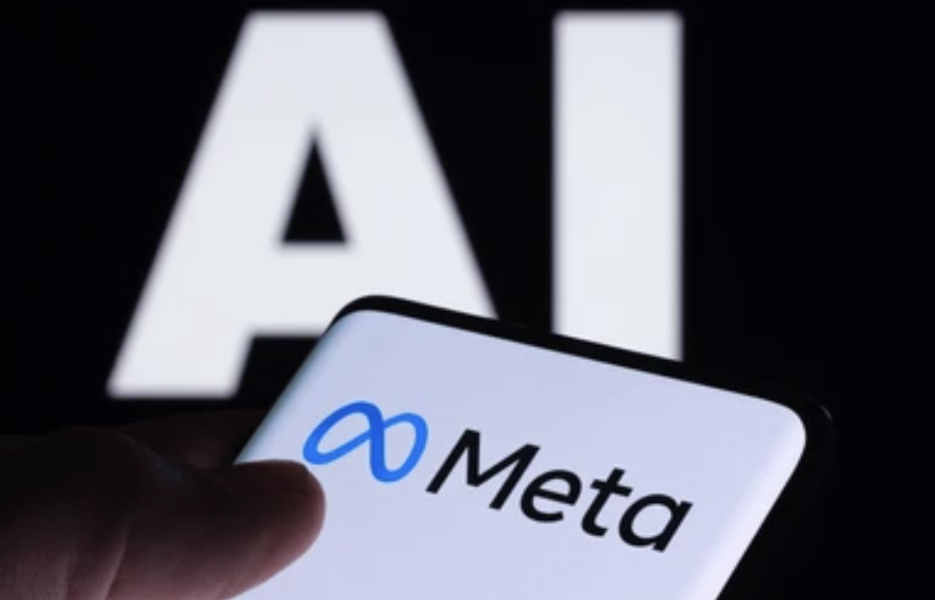Unveiling Ghiblified AI Images: The Magical Fusion of Art and Technology
The Internet is buzzing with an exciting new trend that merges advanced Artificial Intelligence (AI) with the enchanting world of art: Ghiblified AI images. These digital creations transform ordinary photos into mesmerizing artworks that capture the whimsical essence of Studio Ghibli, the iconic Japanese animation studio.
This innovative technology utilizes deep learning algorithms to replicate Ghibli’s distinctive style, resulting in images that evoke nostalgia while pushing creative boundaries. Yet, despite their allure, these AI-generated masterpieces raise significant privacy concerns. Uploading personal photos to AI platforms can expose individuals to risks well beyond basic data storage.
What Exactly Are Ghiblified AI Images?
Ghiblified images transform personal photos into enchanting artwork that echoes the beloved animations of Studio Ghibli. Employing sophisticated AI algorithms, regular snapshots are morphed into illustrations that embody the hand-crafted, painterly appeal of classics like Spirited Away, My Neighbor Totoro, and Princess Mononoke. This transformation goes beyond a mere aesthetic change—it reimagines the image into a breathtaking scene reminiscent of a fantastical reality.
This trend is captivating because it turns simple real-life images into dreamlike artistry, resonating deeply with Ghibli enthusiasts who have an emotional connection to these films. Witnessing a photo metamorphose in this manner elicits a sense of nostalgia and wonder.
The Technology Behind the Magic
The enchanting transformation of images relies heavily on advanced machine learning models, notably Generative Adversarial Networks (GANs) and Convolutional Neural Networks (CNNs). GANs consist of two networks: the generator, which crafts images mimicking a target style, and the discriminator, which evaluates how closely those images resemble the intended aesthetic. Through continuous iterations, the system becomes skilled at generating realistic and stylistically accurate images.
CNNs are specialized in image processing, adept at recognizing edges, textures, and patterns. When it comes to creating Ghiblified images, CNNs are trained to identify unique characteristics of Ghibli’s artistry, such as soft textures and vibrant hues. Together, these models empower users to upload their photos and witness a transformation into various artistic styles, including the enchanting Ghibli style.
Platforms like Artbreeder and DeepArt utilize these powerful AI techniques, allowing users to experience the magic of Ghibli-style transformations—making it accessible for anyone with a photo and a passion for art. Through the lens of deep learning and the beloved Ghibli aesthetic, AI presents a fresh way to interact with and appreciate personal photos.
Understanding the Privacy Risks Involved
While the joy of creating Ghiblified AI images is undeniable, it’s crucial to acknowledge the privacy risks associated with uploading personal images to AI platforms. These risks extend far beyond basic data collection, encompassing significant concerns such as deepfakes, identity theft, and exposure of sensitive metadata.
Data Collection Risks
Uploading an image to an AI platform gives the entity access to that photo. Some platforms might retain these images indefinitely for improving algorithms or building datasets. Consequently, once a photo is uploaded, users may lose control over how it is utilized or stored. Even assurances of deletion after processing don’t guarantee that data won’t be kept or repurposed without user awareness.
Metadata Exposure
Digital images often carry embedded metadata, including location data, device info, and timestamps. If the AI platform fails to strip this metadata, it may inadvertently disclose sensitive user information—like location or the device used to capture the photo. While some platforms attempt to remove metadata, not all succeed, leading to potential privacy infringements.
Deepfakes and Identity Theft
AI-generated images—especially those based on facial features—can be manipulated to create deepfakes. These are altered videos or images that can misrepresent individuals. AI models, adept at recognizing facial features, may be able to generate fake identities or misleading content, exposing individuals to identity theft or misinformation risks.
Model Inversion Attacks
An additional concern is model inversion attacks, wherein attackers use AI to reconstruct original images from generated versions. If a Ghiblified AI image features a person’s face, attackers could potentially reverse-engineer it to access the original photo, resulting in further privacy breaches.
Data Usage for AI Model Training
Numerous AI platforms employ uploaded images for training data, enhancing their image-generation capabilities. However, users often remain unaware that their personal images are being utilized in this manner. While some platforms seek permission for data use in training, the consent may be ambiguous, leaving users in the dark about data exploitation. This vagueness raises significant concerns about data ownership and user privacy.
Privacy Loopholes in Data Protection
Despite regulations like the General Data Protection Regulation (GDPR) designed to safeguard user data, many AI platforms discover ways to circumvent these laws. For instance, they may classify image uploads as user-contributed content or implement opt-in mechanisms that don’t thoroughly clarify data usage, creating significant privacy loopholes.
Protecting Your Privacy While Creating Ghiblified AI Images
As the trend of Ghiblified AI images gains momentum, it’s imperative to take measures that protect personal privacy when using AI platforms.
A key strategy for privacy protection is limiting personal data exposure. Avoid uploading sensitive or identifiable photos; opting for more generic images can significantly mitigate privacy risks. Additionally, carefully review the privacy policies of any AI platform used, ensuring they clearly delineate data collection, usage, and storage practices. Platforms that lack transparency may pose heightened risks.
Another vital step is removing metadata from digital photos. If AI platforms do not adequately eliminate this hidden information, sensitive details may inadvertently be shared. Employing tools to purge metadata prior to uploading images will help guarantee that such data is not disclosed. Some platforms further allow users to opt out of data collection for AI training, providing more control over personal data usage.
For those particularly concerned about privacy, consider utilizing privacy-focused platforms that ensure secure data storage, enforce clear data deletion protocols, and limit image usage to critical necessities. Additionally, privacy-enhancing tools—such as browser extensions that strip metadata or encrypt data—can augment protection when engaging with AI image platforms.
As AI technologies advance, stronger regulations and clearer consent mechanisms are likely to emerge, ensuring more robust privacy protection. Until then, individuals should remain vigilant and proactive in safeguarding their privacy while exploring the creative potential of Ghiblified AI images.
Final Thoughts: Balancing Creativity and Privacy
As Ghiblified AI images rise in popularity, they offer a groundbreaking way to reimagine personal photos. However, it’s crucial to grasp the privacy risks tied to sharing personal data on AI platforms. These involve far more than simple data storage and include issues like metadata exposure, deepfakes, and identity theft.
By adhering to best practices such as limiting personal data, removing metadata, and opting for privacy-centric platforms, individuals can better guard their privacy while enjoying the creative possibilities presented by AI-generated art. With ongoing AI developments, the need for stronger regulations and transparent consent mechanisms will continue to grow, ensuring user privacy in this evolving landscape.
Certainly! Here are five FAQs regarding "The Rise of Ghiblified AI Images: Privacy Concerns and Data Risks":
FAQ 1: What are Ghiblified AI images?
Answer: Ghiblified AI images refer to artworks created by artificial intelligence that mimic the distinct animated style of Studio Ghibli films. These AI-generated images often evoke nostalgia and charm, appealing to fans of the studio’s aesthetic.
FAQ 2: What privacy concerns are associated with AI-generated images?
Answer: Privacy concerns arise primarily from the data used to train AI models. If the training data includes personal images or copyrighted materials without consent, it can infringe on individual privacy rights and lead to potential misuse of personal data.
FAQ 3: How can data risks impact individuals when using Ghiblified AI images?
Answer: Data risks can impact individuals by exposing their personal information through unauthorized image generation or by creating images that unintentionally resemble real people. This can lead to misrepresentation or harassment, especially if the generated images are shared without context.
FAQ 4: What measures can be taken to mitigate these privacy and data risks?
Answer: To mitigate these risks, it’s essential to use ethically sourced datasets for training AI models, implement strong data protection policies, and promote transparency in AI practices. Users should also be cautious when uploading personal images to platforms that generate AI content.
FAQ 5: Are there regulations in place to address these concerns?
Answer: Regulations regarding AI and data privacy are still evolving. Some jurisdictions have enacted laws governing data protection (like GDPR in Europe) that may apply to AI-generated content. However, comprehensive regulations specifically targeting AI-generated images and their associated risks are still in development.










